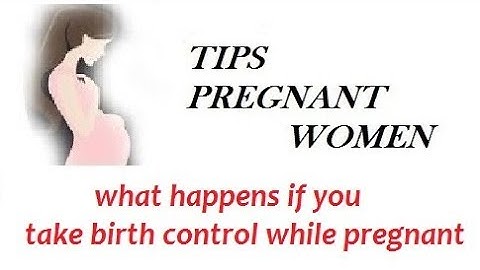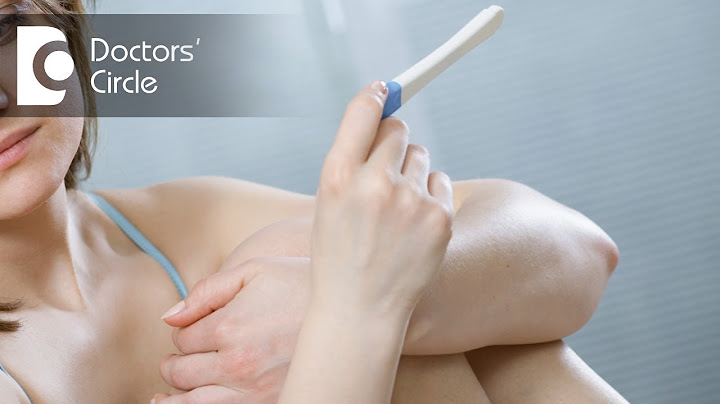Home » Blog » Tips for Getting Pregnant after Stopping Birth Control Show
Tips for Getting Pregnant after Stopping Birth Control Posted on: 15-Oct-2020  You’ve got the job, the house, and the partner. Finally, the time feels right. You are ready to start trying to conceive. Now what? How long before trying to conceive should you stop using your birth control? Will using birth control in the past make it harder to get pregnant now? What can you do to get your body ready for pregnancy? The first step in trying to conceive is to stop using your current birth control. Each birth control method acts a little differently on the body to prevent pregnancy. You will need to know how and when to stop the specific type you use. Here is when you can expect fertility to return for these common types.
In addition to stopping your birth control, you will want to take steps to prepare your body for pregnancy. Start taking a prenatal vitamin three months before trying to conceive. Vitamins, along with a healthy diet, are crucial to help ensure that your body is ready tosupport a healthy pregnancy. Lifestyle choices like exercising, reducing stress, quitting smoking, and cutting back on alcohol intake are all very important as well. These will help increase fertility as well as give you a healthy start to your pregnancy. The third step as you try to conceive, is learning more about your body so that you can recognize when you are fertile. Timing sex during your fertile window (the five days before ovulation and the day you ovulate) increases your chances of becoming pregnant quickly. Tracking your menstrual cycle with apps that note changes in your cervical mucus and basal temperatures can help you determine your fertile window. Ovulation tests are another option to help recognize when you are most fertile. The good news is that long-term fertility is not negatively affected by birth control use. If you have decided the time is right to get pregnant, most forms of birth control allow you to become fertile again within a few days to a few months. It is then safe to get pregnant right away. Most women will become pregnant within a year of stopping birth control. However,the time it takes to conceive will depend on your individual body so if at anytime you have questions or concernsabout your fertility check with your doctor. Dr. Anil Pinto is board certified in Obstetrics and Gynecology and the subspecialty of Reproductive Endocrinology and Infertility. Dr. Pinto has a special interest in the treatment of Polycystic Ovarian Syndrome (PCOS), recurrent pregnancy loss, and advanced reproductive technologies, such as IVF. His peers recently selected him as one of the Best Doctors in Dallas in the field of reproductive endocrinology and infertility. Dr. Pinto is married to Karen Pinto, M.D., a pathologist at Baylor University Medical Center. They live in Dallas with their son and daughter. Dr. Pinto enjoys fly fishing, classical music, and playing the flute. Going off of the pill so you can start trying to get pregnant? Here’s what you can expect as your hormones return to normal. Whether you’ve been on the pill for one year or 20 years, you’re bound to notice a few changes when you stop taking it. The good news is that your fertility will likely return quickly, so you could potentially conceive right away. How long does it take to get pregnant after going off the pill?You can get pregnant within a month of quitting the pill, whether you’re taking combined hormone pills, which contain both estrogen and progestin, or progestin-only pills, says Nicole Todd, an OB-GYN at BC Women’s Hospital + Health Centre and Vancouver General Hospital.  You can stop taking the pill at any point in the pack. If you’ve been taking combined hormone pills, which thicken your cervical mucus and change your uterine lining while preventing ovulation, you could start ovulating again one week after quitting. Depending on the length of your cycle, you could start developing an egg a week after, which would be released about a week after that. If you time things right, you could potentially conceive two weeks after giving up the pill. But Todd notes that waiting a month before trying to conceive will make it easier to date your pregnancy because you’ll know the timing of your last period. If you’ve been taking progestin-only pills, which thicken your cervical mucus and thin your uterine lining (and sometimes halt ovulation), where you are in your cycle will determine when you’ll be able to conceive. Progestin-only pills are very sensitive, so you’ll need to take them at the same time every day or your cervical mucus will begin to thin. That means, once you go off the pill, your cervical mucus will quickly return to normal, making it easier for sperm to reach the egg. If you’re ready to release an egg just after you stop the pill, you could potentially get pregnant very quickly. This return to fertility is similar to most types of contraception, such as contraceptive patches and vaginal rings (which contain the same hormones as combined hormone pills) and even intrauterine devices (IUDs). But quitting the pill offers a faster return to fertility than Depo-Provera, a progestin-containing birth control method that’s injected every three months. “That one can take anywhere between six months and one year for ovulation to return,” explains Todd, as the medication may work its way out of a person’s system more slowly. However, not everyone’s period will return right after stopping birth control, says Yolanda Kirkham, an OB-GYN at Women’s College Hospital and St. Joseph’s Health Centre in Toronto. Though being on the pill—even for a prolonged period of time—isn’t related to reduced fertility, any issues you had before you started the pill, such as infrequent periods and polycystic ovary syndrome, will continue to affect your fertility after you quit. Also, if you’ve been on the pill since you were 15 and you’re now 35, your fertility will have naturally declined with age. Women who are on a severely low-calorie diet may also not get periods, says Kirkham. What are the side effects of going off the birth control pill?“When you go off the birth control pill, your hormones will come back within one to two weeks,” says Todd. “Some people may experience irregular spotting and a return to premenstrual syndrome [PMS] symptoms, such as bloating, breast tenderness and mood fluctuations.” Because your hormones are now able to operate in a normal cyclical fashion, many of the symptoms you had before going on the pill may return. If you decided to take the pill to help with acne, you could see that skin condition return. If you had heavy periods and cramping before, those symptoms are likely to come back as well. For some women, the birth control pill can reduce their libidos, so going off the pill could cause your sex drive to increase to pre-pill levels. A common misconception is that going off the pill will lead to weight changes, but that’s not likely to happen, says Todd and Kirkham. If you are in your 40s when you stop taking combined hormone pills, you may notice that your premenstrual and ovulation symptoms are stronger than they were before. That’s because PMS symptoms tend to be stronger in the teen and premenopausal years. If you’re struggling with any new symptoms, talk to your doctor. Read more: How soon did you get pregnant after stopping birth control?
Does ovulation stop immediately after conception?Yes for sure: You do stop ovulating immediately after conception. You complete ovulation, conception happens within 1 day and since you are pregnant you do not ovulate again. Is it possible to feel nausea a day after conception? Women may experience nausea and vomiting at any time throughout the day and as early as 2 weeks after conception . Some women also report feeling dizzy or wobbly early on in pregnancy, often when they get up after lying down.
When will fertility return after stopping birth control?When you stop using birth control pills and most combination birth control methods like NuvaRing, your fertility should return within the first month. Fertility may take 7 to 10 months to return with Depo Provera. Other factors may also affect your fertility. If you have concerns after stopping birth control, talk to your healthcare provider.
What to know before stopping birth control?“A woman should start on a prenatal or multivitamin prior to stopping the pill if she plans to become pregnant. We recommend three months prior [to conception],” she said. 5. You may want to wait to get pregnant
Can you ovulate a week after stopping birth control?After stopping the pill, you could ovulate as soon as 48 hours later. Most women won't have a period for two to four weeks after stopping, but you could still get pregnant in this time. It's important to note that you can get pregnant even when not ovulating. This is because sperm lives in the body for a few days.
Can I get pregnant immediately after stopping the pill?You can get pregnant right away after you stop regular-dose or low-dose hormonal birth control. About half of women get pregnant in the first 3 months after stopping the pill. Most women get pregnant within 12 months after stopping the pill.
|

Related Posts
Advertising
LATEST NEWS
Advertising
Populer
Advertising
About

Copyright © 2024 boxhindi Inc.

















